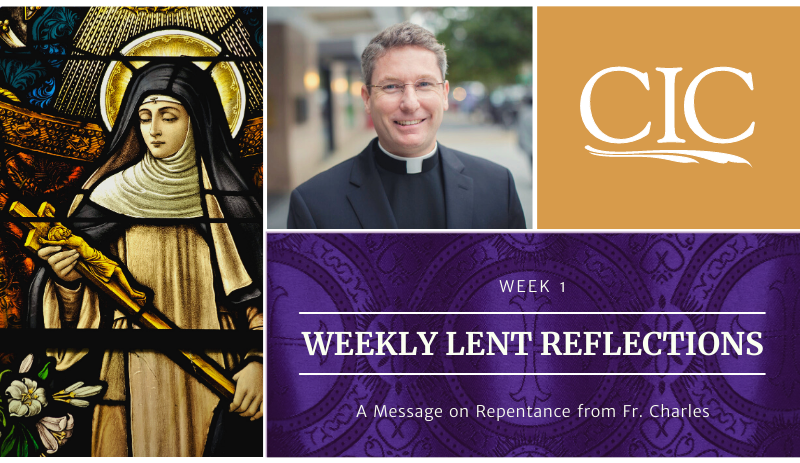A Lenten Meditation by Fr. Charles Trullols: Repentance

A Message on Repentance
By Fr. Charles Trullols, Director of the Catholic Information Center
Monday, February 22, 2021
www.cicdc.org/lent2024
| My sacrifice, O God, is a contrite spirit; a contrite, humbled heart, O God, you will not scorn. (Psalm 51) Repentance or contrition is “voluntary sorrow because it offends God, for having done something wrong, together with the resolve to amend one’s conduct by taking the necessary means to avoid the occasions of sin.” Saint Josemaria liked to compare acts of contrition with something he had learned from an Italian saying with regard to cups of coffee: drink at least three and no more than thirty-three: the more the better! As he says in Furrow: “Renew your acts of contrition during the day. You must realize that Jesus is being offended constantly, and unfortunately these offenses are not being atoned for at the same rate. That is why I have so often said: ‘Acts of contrition, the more the better!’” The Catechism of the Catholic Church teaches that perfect contrition is the sorrow that “arises from a love by which God is loved above all else.” Since it is an act of Love, it is already a work of grace, and therefore it “remits venial sins” and also obtains “forgiveness of mortal sins if it includes the firm resolution to have recourse to sacramental confession as soon as possible.” An imperfect contrition is also possible, which is “born of the consideration of sin’s ugliness or the fear of eternal damnation and the other penalties threatening the sinner.” It prepares us for confession and absolution of our sins, although by itself it does not obtain forgiveness of grave sins. Do you remember what Jesus preached to his contemporaries -and to you and me now- as he started his public life? “This is the time of fulfillment. The kingdom of God is at hand. Repent, and believe in the gospel” (Mark 1:15). As we start Lent let’s make this request of repentance our daily pillar to receive our Lord now and be united with him in his Passion, Death and Resurrection. “If we say, “We are without sin,” we deceive ourselves, and the truth is not in us. If we acknowledge our sins, He is faithful and just and will forgive our sins and cleanse us from every wrongdoing” (1 John 1:8-9). |
